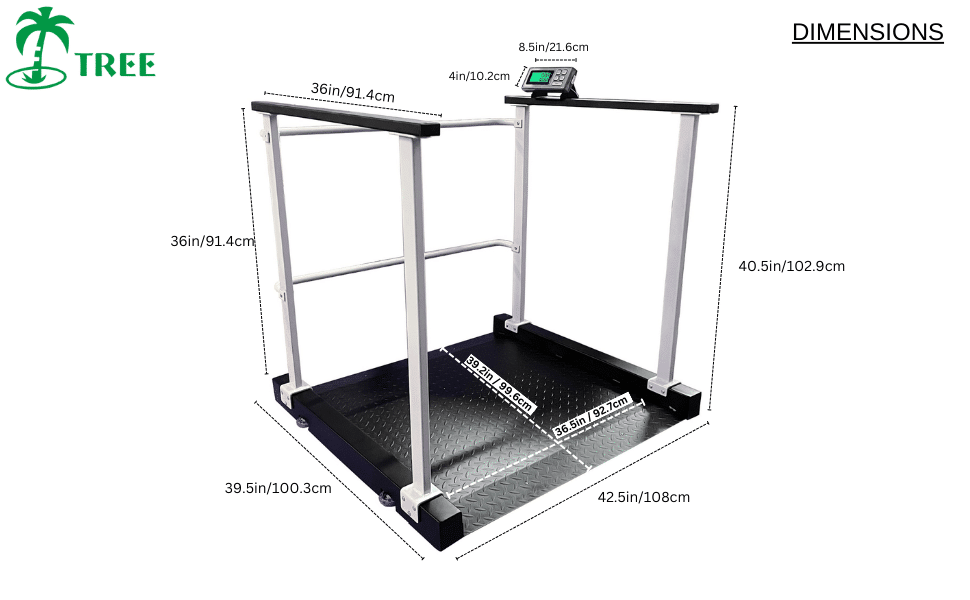
In healthcare, weighing patients accurately is essential, but so is making sure every patient can be weighed with dignity, safety, and ease. That’s where wheelchair scales come in. These specialized devices are crucial for facilities serving patients with limited mobility, from hospitals and nursing homes to rehab centers and clinics.
One standout in this category is the LWC-HR 1000 Wheelchair Scale. It’s a reliable, heavy-duty option designed with both precision and patient accessibility in mind. In this post, we’ll dive into what makes this model exemplary and what features you should consider when choosing a wheelchair scale for your facility.
What Is the LWC-HR 1000 Wheelchair Scale?
The LWC-HR 1000 is a medical-grade, high-capacity wheelchair scale designed to provide accurate weight measurements for patients using wheelchairs. Here are some of its key features:
- 1,000 lb capacity accommodates nearly all patients and mobility devices.
- Low-profile platform with ramps allows for easy rolling on/off.
- Integrated handrails offers support for patients who can stand or need balance assistance.
- Large, easy-to-read digital display ensures quick reading for staff.
- Tare functionality allows staff to subtract the wheelchair’s weight for net patient weight.
- Durable steel construction built for high-traffic environments like hospitals and rehab centers.
- Portable design some models come with wheels for easier transport and storage.
This combination of robustness, ease-of-use, and accuracy makes the LWC-HR 1000 a trusted choice in demanding clinical environments.
Why Wheelchair Scales Matter in Clinical Settings
Wheelchair scales are more than a convenience as they’re a necessity for comprehensive and inclusive patient care. They:
- Ensure accurate weight monitoring for patients unable to stand safely.
- Protect patient dignity by minimizing the need for difficult transfers.
- Improve safety by reducing fall risk during weigh-ins.
- Support clinical decision-making, especially in dosage calculation and nutrition management.
Key Features to Look For in a Wheelchair Scale
If you’re shopping for a scale similar to the LWC-HR 1000, prioritize these features:
High Capacity
Choose a scale with at least 1,000 lb capacity to accommodate patients of all sizes, including bariatric patients and their mobility aids.
Low-Profile Platform & Ramps
A gentle incline ensures wheelchairs roll on and off smoothly, reducing strain on both staff and patients.
Tare Function
The ability to zero out the wheelchair’s weight is essential for capturing a patient’s true body weight.
Integrated Handrails
Handrails add support for partially mobile patients and can double as safety features during standing weight checks.
EMR Connectivity (Optional)
Some advanced models include Bluetooth, Wi-Fi, or USB ports to sync data with electronic medical records (EMRs).
Portability and Storage
If space is limited or you need to move the scale between rooms, look for a foldable or wheeled design.
The LWC-HR 1000 wheelchair scale demonstrates how thoughtful design can blend accessibility, durability, and precision in clinical tools. Whether you’re equipping a hospital, long-term care facility, or outpatient clinic, investing in a high-quality wheelchair scale is an essential step toward inclusive, efficient, and safe patient care.
If your patients can’t stand, their care doesn’t stand still—and neither should your equipment.

